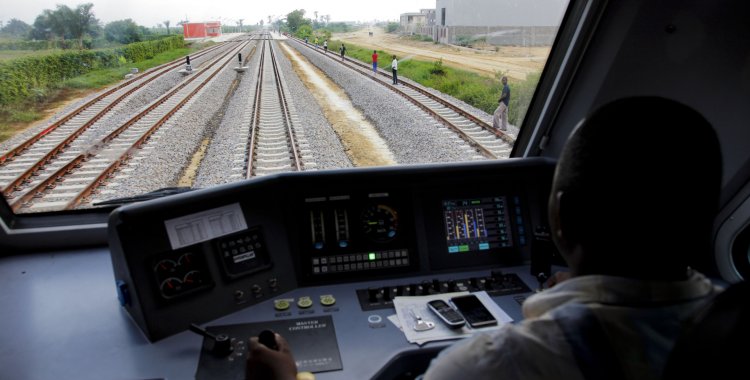"I know that the main intention of this consortium is to transport ore, but I have, over time, approached the Lobito Corridor from another perspective and that perspective does not equal this one", said Ana Duarte in statements to the Lusa agency.
The researcher is a collaborator at the Economic Research Center of the Lusíada University of Angola, Benguela nucleus, and co-author of the article "The rehabilitation of the Benguela Railway and the reactivation of the Lobito Corridor", together with Regina Santos, which is part of the book "Africa's Railway Renaissance: The Role and Impact of China", published in July this year.
The concession for the Lobito corridor was handed over to LAR - Lobito Atlantic Railway, a company formed by the Swiss Trafigura, the Portuguese Mota-Engil Engenharia e Construção África SA, and the Belgian Vecturis SA, an investment of 455 million dollars.
According to the academic, "there is room for both things, that is, neither the transport of ore implies that passengers and other goods cannot be transported, nor does the transport of passengers and goods imply that the transport of ore is excluded".
"What I regret is that there is foreign interest or investment, which focuses on transporting the ore, and that they themselves do not have a solution, or that they have left this solution to the CFB [Caminho-de-Ferro de Benguela], as that it wasn't so important, in terms of transporting passengers and goods", he said.
Ana Duarte highlights that the CFB, since resuming circulation to the interior area, has been a means of transport and a means of subsistence for those communities that live along the line.
"And these dynamics, which were being created in an almost spontaneous and autonomous way, could be enhanced and could have multiplier effects, which could be better utilized if there was a policy that considered them and created conditions for them to develop" , he stressed.
The researcher lamented that "there is no awareness - at least publicly", that the transport of minerals could imply that in the future there would be "no implications whatsoever in terms of the local economy, because a country is only better if it has fewer poor people and does not there's one more rich person."
The university professor fears that the lack of synergies will create division and not bring positive results, and the "tunnel effect" could be created, because it is not the same entities that will explore these two aspects.
Ana Duarte highlighted that Angola will transport copper, an "ore that is not even in Angola", fearing that dependence on this product will be created, like what happens with oil, generating "an enclave economy with very little impact at other levels, in particular, at the social level".
"I'm afraid that's the case too," she said, questioning to what extent the Lobito Corridor, like others that exist in sub-Saharan Africa, "can be an agricultural corridor."
"In other words, why can't these companies, which invest heavily in creating infrastructure and logistics conditions for the transport and export of ore, also do this in agricultural terms? Because the corridor crosses areas with enormous agricultural potential", he added .
According to the researcher, nowadays the train is the best means of transport for environmental reasons, the most suitable for transporting large quantities, "but I don't see this public affirmation of this double need".
The Lobito Corridor covers the Port of Lobito, the mining terminal and the CFB, which extends for more than 1300 kilometers, from the province of Benguela to Luau, province of Moxico, continuing with another 400 kilometers in the DRCongo to Kolwezi, the heart of mining area known as the Copperbelt, being directly connected to the railway network managed by the National Railway Society of Congo (SNCC).







